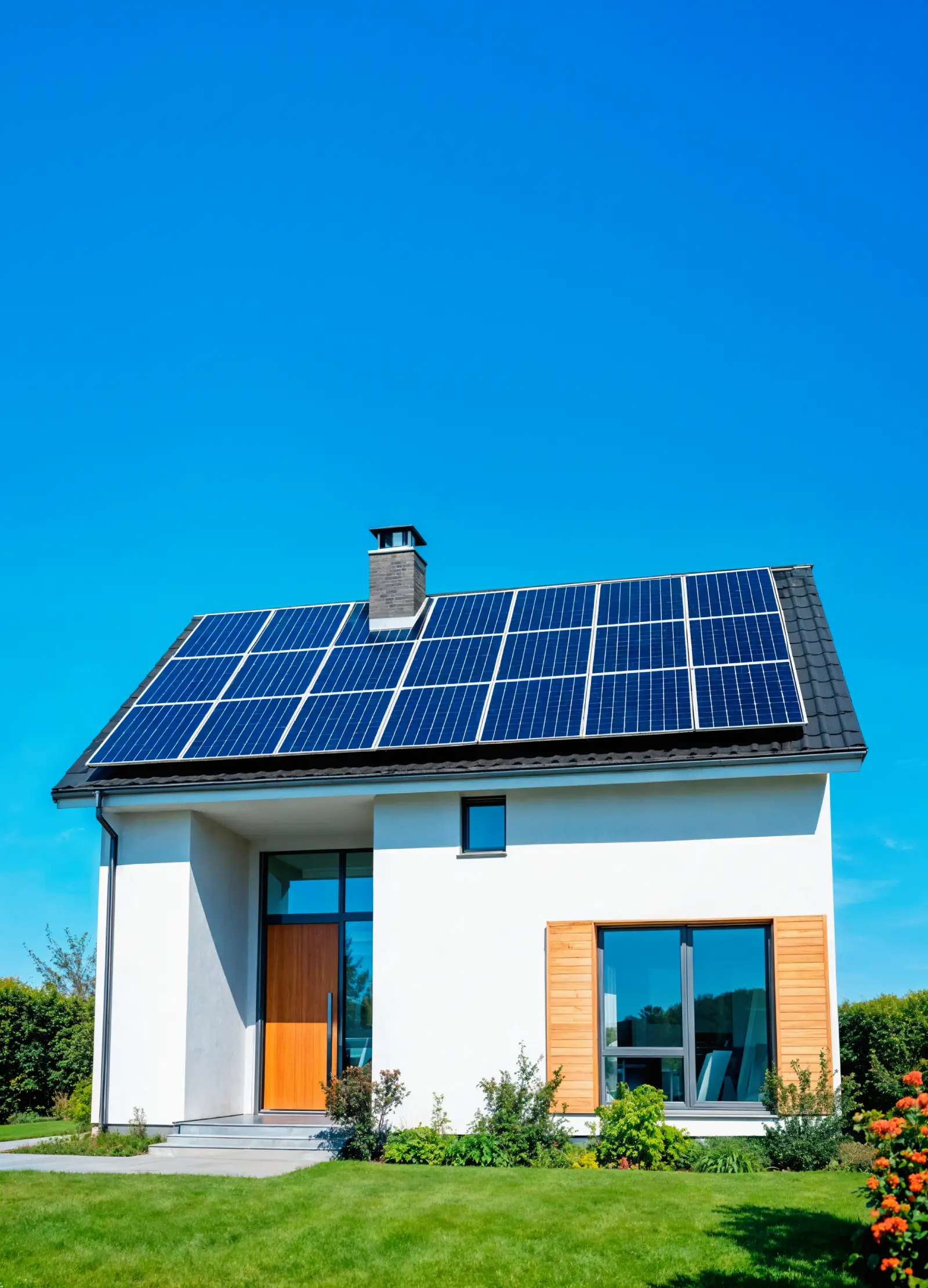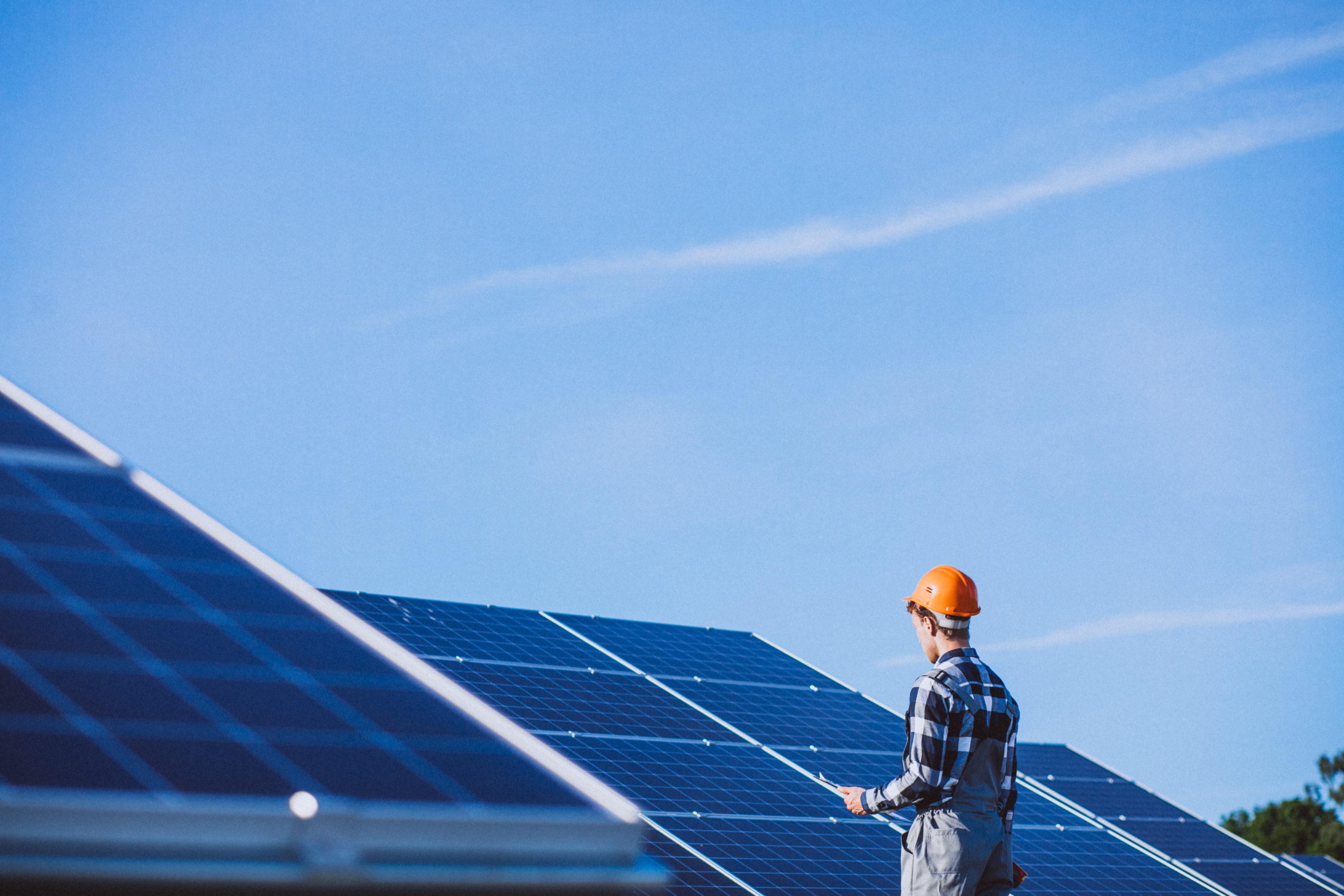Why Choose Solar Panels for Your Home?
Environmental Benefits
Solar panels significantly reduce your carbon footprint by producing clean, renewable energy. A typical residential system can offset three to four tons of carbon emissions annually — that’s like planting over 100 trees each year.
Financial Advantages
Installing solar panels can drastically reduce your monthly electricity bills. In many cases, homeowners report saving thousands of dollars over the lifespan of their solar systems.
Increase in Property Value
Homes with solar installations often see higher resale values. According to Zillow, homes with solar sell for about 4.1% more than those without.



Understanding the Cost of Home Solar Panels
Upfront Costs:
The average cost of a residential solar panel system ranges from $15,000 to $25,000 before incentives. The final price depends on system size, brand, installation fees, and your home’s energy needs.
Tax Credits and Incentives:
Federal and state solar tax credits can significantly reduce your investment. The federal solar tax credit (ITC) allows you to deduct 30% of the system cost from your federal taxes.
Financing Options:
You don’t need to pay upfront. Options include solar loans, leases, and Power Purchase Agreements (PPAs), allowing homeowners to install solar with little to no money down.
The Residential Solar Panel Installation Process
Site Evaluation:
A solar professional will assess your roof’s size, slope, shading, and energy needs to determine the best system for your home.
System Design and Permits:
After evaluation, your system is designed to maximize energy efficiency. This step includes obtaining all necessary permits from local authorities.
Installation and Activation:
Installation usually takes 1-3 days. Once installed, the system is inspected and connected to the grid. After approval, your system is switched on, and you start generating power!
Types of Solar Panels for Your Home
Monocrystalline Panels
These high-efficiency panels are made from a single crystal structure, offering the best performance and longest lifespan.
Polycrystalline Panels
More affordable but slightly less efficient, polycrystalline panels are made from multiple silicon fragments melted together.
Thin-Film Panels
Lightweight and flexible, thin-film panels are ideal for unique roof types or spaces where traditional panels won’t work.
Solar Batteries and Energy Storage Options
How Solar Batteries Work
Solar batteries store excess electricity produced during the day for use at night or during outages, giving you energy independence.
Benefits of Battery Backup Systems
They provide backup power, reduce reliance on the grid, and allow you to make the most of your solar investment.
Maximizing Efficiency and Savings
Optimal Placement
South-facing roofs with minimal shading provide the best results. Proper angle and tilt improve panel efficiency.
Maintenance Tips
Solar panels are low-maintenance. Regular cleaning and annual inspections keep them running at peak performance.
Monitoring Your System
Use mobile apps or online dashboards to track energy production and catch issues early.
Common Myths About Solar Panels for Your Home
Solar Only Works in Sunny States
False. Solar works in all climates. Panels generate energy from light, not heat, and perform efficiently even in cloudy regions.
They’re Too Expensive
With tax incentives and financing, solar is more accessible than ever. Most systems pay for themselves in under 10 years.
They Take Too Long to Install
In reality, the installation process is fast — often completed within a week including permitting.
FAQs About Solar Panels for Your Home
Q1: How long do home solar panels last?
Most residential solar panels last 25 to 30 years. Their performance may decline slightly over time but they still produce significant power.
Q2: What happens during a power outage?
If you don’t have a solar battery, your system will shut down during an outage for safety reasons. With a battery, you’ll continue to have power.
Q3: Can I go off-grid with solar panels?
Yes, but it requires a large system and battery storage. Most homeowners prefer grid-tied systems with battery backup for flexibility.
Conclusion
Switching to solar panels for your home is a smart investment in your financial future and the health of our planet. From cost savings and increased home value to energy independence and environmental benefits, residential solar offers countless advantages. Whether you’re just beginning your solar journey or ready to install, LIXIA Solar Residential is here to guide you every step of the way.
